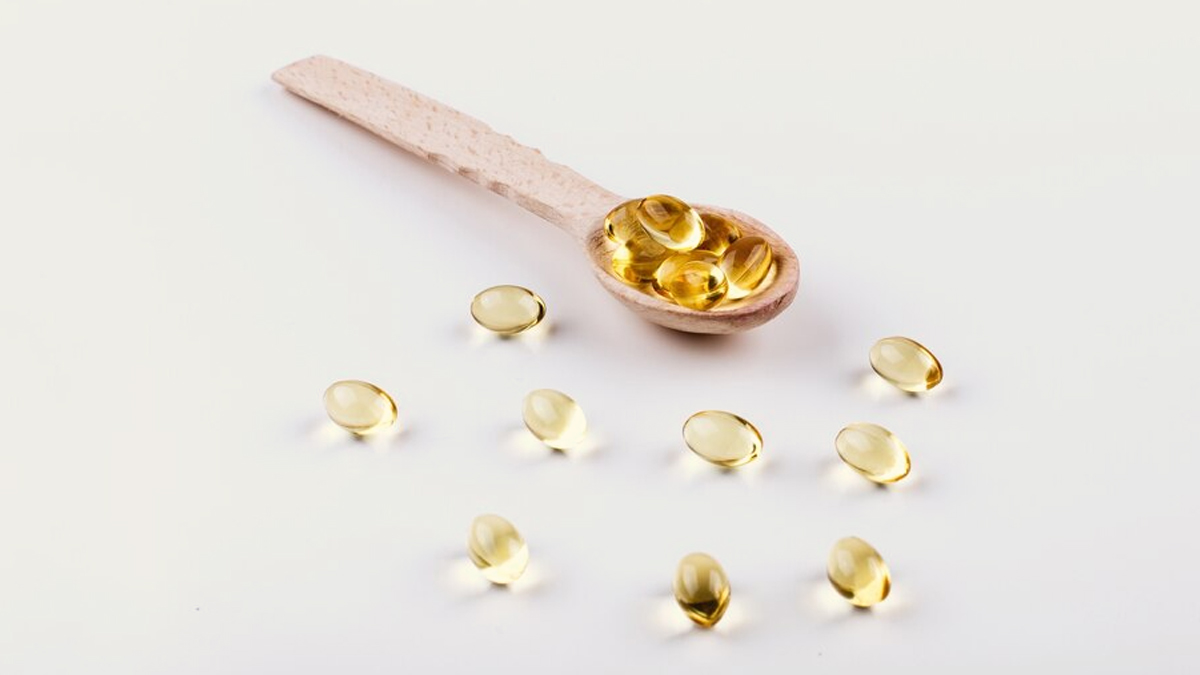
Fish oil is a dietary supplement derived from the tissues of oily fishes like salmon, mackerel, and tuna. Fish oils contain the omega−3 fatty acids Eicosapentaenoic Acid (EPA) and Docosahexaenoic Acid (DHA), which are considered good for the heart and the brain.
Generally, it is recommended to get sufficient omega-3s from fish sources, such as anchovy, mackerel, salmon, and tuna. However, if you do not get enough omega-3 from diet alone or have underlying medical conditions, like high triglycerides, or rheumatoid arthritis, you can consult a doctor for fish oil supplements. However, there are certain considerations to make depending on the individual's age.
In an interaction with the OnlyMyHealth team, , shares the recommended fish oil dosage according to different age groups.

Fish oil is a healthy source of omega-3 fatty acids, offering several health benefits. Omega-3 fatty acids are a class of Polyunsaturated Fat (PUFA) essential for heart and brain health.
There are three main types of omega-3 fatty acids: Alpha-Linolenic Acid (ALA), Eicosapentaenoic Acid (EPA), and Docosahexaenoic Acid (DHA).
According to a study published in , omega-3s, particularly EPA, may help reduce the risk of heart-related death, heart attacks, and other cardiovascular events.
Furthermore, omega-3 or fish oil supplements may also help prevent neurodegeneration in older adults, according to a 2018 review published in the journal .

Sheikh also highlights some of the health benefits of taking fish oil, as per people’s age group:
Supports brain development, cognitive function, and eye health; may also help with Attention-Deficit/Hyperactivity Disorder (ADHD).
Reduces inflammation, supports heart health, improves brain function, and may help with mental health conditions like depression and anxiety.
Supports cognitive function, reduces the risk of dementia, promotes joint health, and other inflammatory conditions.

While there is no official recommendation for fish oil dosages, the previous information provided by the European Food Safety Authority (EFSA) recommends taking 250-500 milligrams (mg) daily. However, the dosage may vary from one age group to another, and here's the breakdown provided by our expert:
50–100 mg of DHA per day (usually from breast milk or fortified formula).
250–500 mg of combined EPA and DHA per day.
500–1,000 mg of combined EPA and DHA per day for general health; higher doses (up to 3,000 mg) for specific conditions like heart health or inflammation.
1,000–2,000 mg of combined EPA and DHA per day, especially for cognitive and joint health.
It is important to consult a healthcare provider before taking fish oil supplements, as they can sometimes lead to side effects. According to Sheikh, children can develop gastrointestinal symptoms, whereas blood thinning and excessive bleeding are added complications in adults. In older adults, one must also watch out for any interactions with medications like blood thinners, warns the expert.
Fish oil is a good source of omega-3 fatty acids that help support heart and brain health. While dietary sources like fatty fish are the best way to get sufficient omega-3s, supplements can be beneficial for those who do not get enough through diet alone. However, the right dosage varies depending on people's age and health needs. Therefore, consulting a healthcare provider before starting supplementation is crucial.












